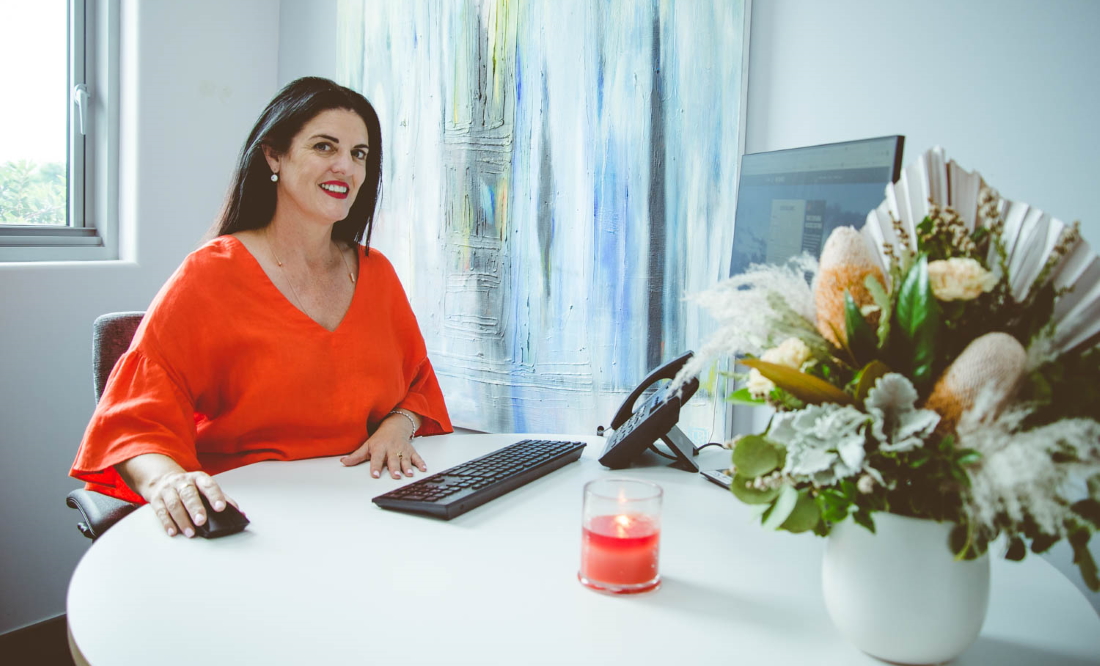8 Tips To Help Manage Sickness In The Workplace
- Written by Niki Clark

New research shows most Australians will only stay home, taking the day off work, if they are really unwell. The Australian National University study found that 96.5 percent of non-healthcare workers and 99.2 percent of healthcare workers, said they went to work with minor flu symptoms.
HMS Medical director Heather McLellan-Johnson, who is managing director of three medical centres in QLD, including a new Federal Government-funded COVID Respiratory Clinics, says there needs to be change, and more inclusive discussion around the issue of sick leave.
“There is still some confusion around company sick leave policies in this new era, with employees going in to work unwell, not knowing how long they should stay away for and being concerned they don’t have enough leave to cover them,” says Ms McLellan-Johnson.
“Under no circumstances should your team come into work if they have any flu-like symptoms,” she says.
“They need to understand they have to stick to the company protocols - and do their civic duty. That might mean getting tested and cleared first. Currently mild to moderate symptoms are to be checked because C19 can look like any other virus to begin with.”
“As a society it is embedded that what we value is high performance - looking, acting, appearing perfect. The climb to high performance doesn't allow for illness, depression, overwhelm, tears, anger. This pushes us to work when we're exhausted, burned out, unwell. We need to look at priorities in terms of selfcare, our children’s care, and caring for those in our community.”
“The priority should be caring for staff - who in return will care for the business and clients.”
Ms McLellan-Johnson shares 8 tips for businesses owners to manage sick leave:
- Have a clear company policy: Your team needs to understand clearly when they should, and shouldn’t come into work. Currently anyone with a cough, cold, shortness of breath, fatigue, fever, sore throat should not go into work.
- How long should they stay home: They need to stay home until they have been tested and cleared - it’s only safe to return when they know they are actually well, and there’s no chance of spreading any other virus they may be carrying.
- Managing the workload: Sometimes being unwell means work isn’t the most important thing right now. What priority is more important than our health? What truly can't wait? Why are we having such high expectations on each other? Is there anyone else in the team they collaborate with or someone that can stand in for them? Alternatively, can another route be considered - Zoom, work from home etc?
- Is there enough sick leave: This might need to be discussed internally as a business or company. Currently the standard sick leave is around 8 days/ year. If an employee needs more sick leave often another arrangement is made, that could be utilising annual leave or considering a solution with makeup time when they are well. This needs to be discussed as a company or business - at the end of the day workers cannot be expected to come in when they are unwell.
- When is a medical certificate required: Company rules differ, but usually sick leave of more than two days requires a Medical Certificate.
- Inclusive policies work best: Managing sick leave and balancing the needs of the company with the employee, works best when staff are consulted and included in these discussions. There should be more transparency about what people need - and collaboration on how this could work. Private companies can't afford to pay for lack of production, but surely there can be conversations and provision around this.
- We’re all in this together: Engage in working policies that maintain a healthy team. Discuss safer working environments and infection control. In these difficult and quickly changing times, have real conversations with your team. What can you do to ride this wave together? This fiscal year and 20-21 may be there year where no one makes a profit - would it be fine just to break even, if we were able to keep our team and their families safe?
- Different requirements related to certain professions: Naturally, in health we have the most stringent requirements around staff coming in sick, but all businesses need to take this seriously. There are standard precautions (washing hands after bathrooms/before eating or preparing food, maintaining safe distance, not touching our face, no hands in mouth, coughing into the elbow, washing/shower every day, cleaning our clothes) and we are trusting in the knowledge that everyone is performing at these standards, and we aid people who need help in these areas, we'll be much further ahead as a community.
About HMS Medical Group
HMS Medical Group created by Heather McLellan-Johnson and Dr Mark Spanner, combines Heather’s business acumen with Mark’s considerable medical experience, leading a team of highly experienced doctors. Together they created Medical on Miami, Burleigh Cove Medical and the new Burleigh Cove Respiratory Clinic - offering an innovative model of collaborative health with a wide range of services under the one roof, including pathology, radiology, psychology and counselling, physiotherapy, pilates and more. www.hmsmedicalgroup.com.au











